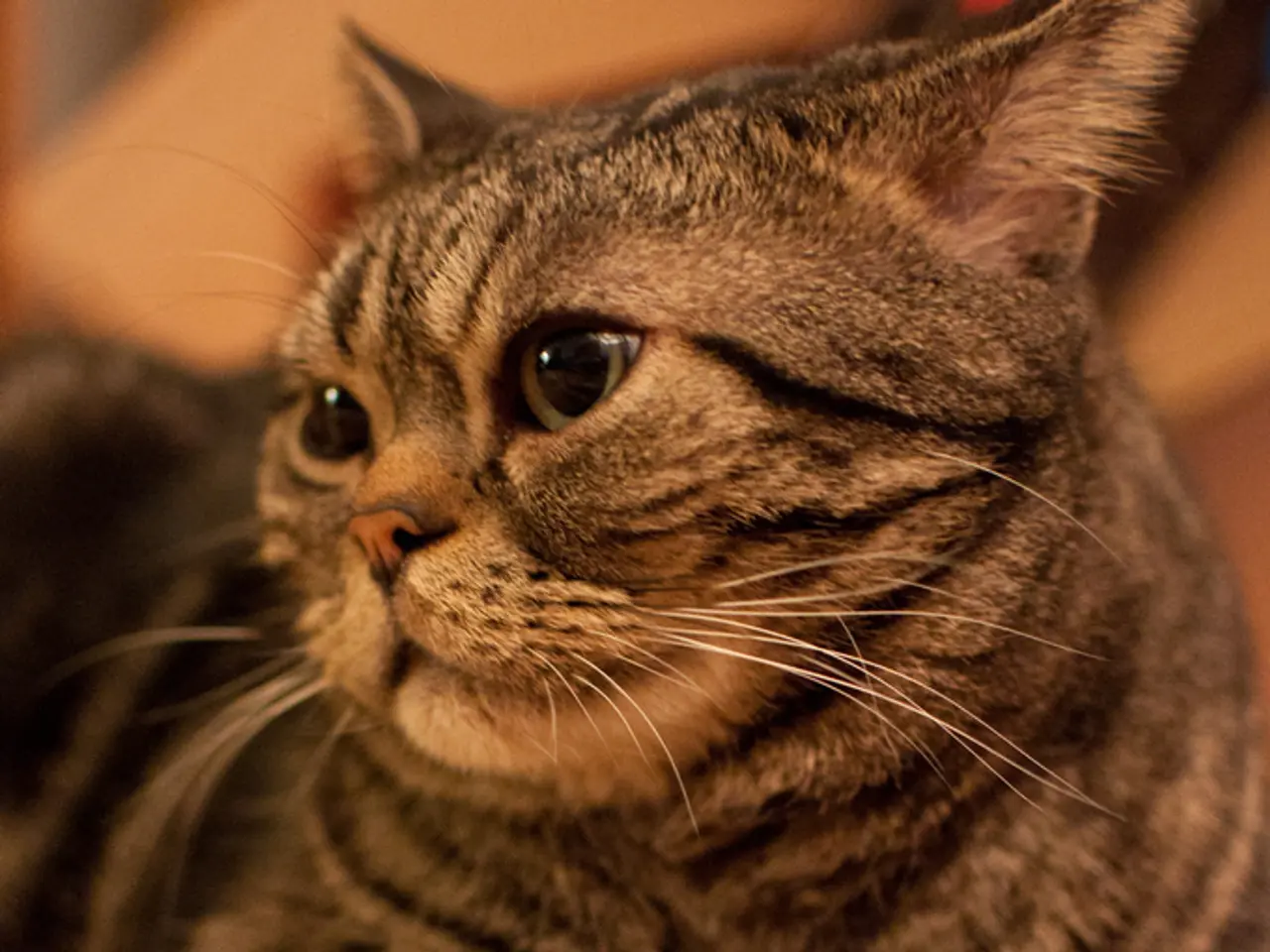Frequent Feline Vocalization: Understanding Your Cat's Continuous Meowing
In the world of feline communication, meowing is a common form of expression. However, when a cat's meowing becomes excessive, it can be a source of concern for pet owners. This article aims to shed light on the common reasons behind a cat's persistent meowing and provide some solutions.
During the mating season, unspayed female and unneutered male cats may meow relentlessly. Spaying or neutering can help reduce vocal behaviors related to the heat cycle and breeding season. But excessive meowing can also be a sign of other factors.
Cats often meow persistently around mealtimes or when they want food or water, indicating hunger or thirst. Similarly, seeking attention is another common reason for a cat's meowing. Cats may meow to get attention, affection, or interaction from their owners, especially if they feel bored or lonely.
Changes in environment can also cause cats to experience stress or anxiety, leading to increased vocalization. Moving, furniture rearrangement, or the introduction of a new pet can trigger this response. In senior cats, cognitive decline or feline dementia may lead to confusion, disorientation, and excessive meowing or yowling, especially at night.
Medical issues can also cause cats to vocalize more as a sign of distress or discomfort. If a cat's meowing is new or unusual, it is advisable to investigate further with a veterinarian, especially to rule out medical causes or cognitive dysfunction.
Hormonal behaviors can also contribute to a cat's excessive meowing. Unspayed or unneutered cats may meow excessively due to mating behaviors. Additionally, cats can learn that meowing results in rewards such as food or attention, reinforcing the excessive meowing.
If no medical cause is found, focus on enrichment such as puzzle feeders, toys, and regular interaction to help stop excessive meowing. An outdoor cat enclosure or cat door could be considered if a cat meows to go outside. For indoor-outdoor cats, changes in routine may cause them to meow to gain access in or out.
In conclusion, excessive meowing can indicate basic needs (hunger, thirst, attention), emotional states (stress, anxiety, loneliness), age-related cognitive problems, or medical issues. By understanding the underlying causes, pet owners can take steps to address their cat's meowing and ensure a harmonious home.
- Sometimes, hormonal imbalances from unspayed or unneutered cats can lead to persistent meowing, which is a form of mating behavior.
- Aging cats might exhibit excessive meowing or yowling due to cognitive decline or feline dementia, particularly at night.
- Changes in the environment, such as moving, furniture rearrangement, or the introduction of a new pet, can cause cats to experience stress or anxiety, resulting in increased vocalization.
- Incorporating enrichment activities like puzzle feeders, toys, and regular interaction can help reduce excessive meowing when there is no medical cause, especially for indoor cats or those seeking outdoor access.




